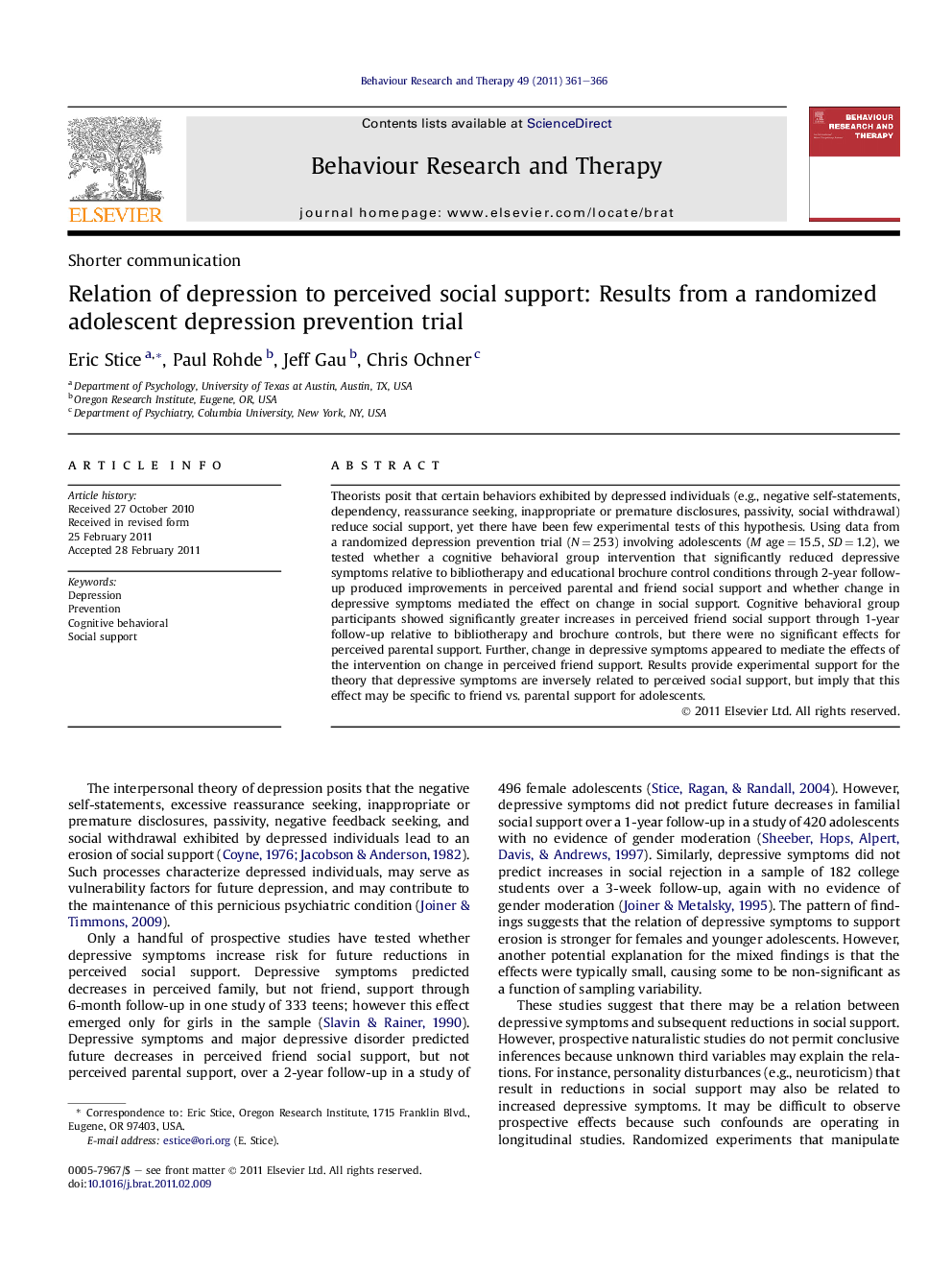| Article ID | Journal | Published Year | Pages | File Type |
|---|---|---|---|---|
| 902122 | Behaviour Research and Therapy | 2011 | 6 Pages |
Theorists posit that certain behaviors exhibited by depressed individuals (e.g., negative self-statements, dependency, reassurance seeking, inappropriate or premature disclosures, passivity, social withdrawal) reduce social support, yet there have been few experimental tests of this hypothesis. Using data from a randomized depression prevention trial (N = 253) involving adolescents (M age = 15.5, SD = 1.2), we tested whether a cognitive behavioral group intervention that significantly reduced depressive symptoms relative to bibliotherapy and educational brochure control conditions through 2-year follow-up produced improvements in perceived parental and friend social support and whether change in depressive symptoms mediated the effect on change in social support. Cognitive behavioral group participants showed significantly greater increases in perceived friend social support through 1-year follow-up relative to bibliotherapy and brochure controls, but there were no significant effects for perceived parental support. Further, change in depressive symptoms appeared to mediate the effects of the intervention on change in perceived friend support. Results provide experimental support for the theory that depressive symptoms are inversely related to perceived social support, but imply that this effect may be specific to friend vs. parental support for adolescents.
